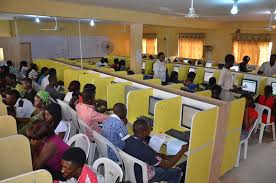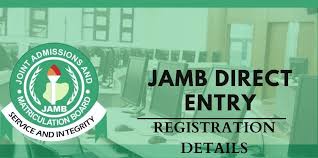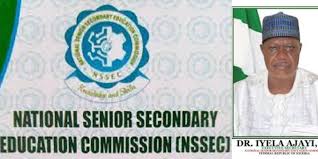
2025 budget: NASS to remove JAMB from FG grant
"We should consider other ways to form a robust economic bloc in order to mobilise resources, especially from investors in the diaspora. Many more people from that area may wish to invest, but they are quite afraid about the security situation. What should we do about investors' apparent fear?
I would say, "How do we create partnerships that can open this possibility in this amazing region? I believe that one of the things we are doing right now is simply talking, doing, and coming up with a lot of ideas.
"There are a tonne of opportunities."
Therefore, I'm considering who else I could work with to open up this kind of potential.The kind of collaboration I believe we ought to have In the 2025 budget proposal, the National Assembly, which consists of the Senate and the House of Representatives, threatened to abolish the Joint Admissions and Matriculation Board, or JAMB, claiming that it was unreasonable for the board to withhold N4 billion from the federation account even though it received N6 billion from the federal government in 2024.
The federal government ought to cease awarding JAMB grants and permit it to spend its profits, according to NASS.
The NASS joint committee's stance followed the presentation by Prof. Ishaq Oloyede, JAMB Registrar, who addressed the committee, which was chaired by Senator Sani Musa of the APC in Niger East, to defend the agency’s 2025 budget proposai at an interactive session on ministries, departments and agencies, MDAs’ revenue projections for 2025.
Giving a breakdown of the performance of JAMB’s 2024 budget, Oloyede told the lawmakers that the board remitted N4billion to the consolidated revenue fund, while it got a grant of N6billion from the federal government.
This did not go down well with the committee as some members, including Abiodun Faleke and Senator Adams Oshiomhole, APC, Edo, questioned why a self-funding agency should be getting allocations from the federal government.
“You remitted N4billion and got N6billion from the federal government. Why not keep the N4billion and we stop the government from funding JAMB,” the Chairman, House Committee on Finance, Faleke queried.
On his part, Oshiomhole queried: “You spent N1.1billion on meals and refreshment. Are you being freely fed by the government? What this means is that you are spending the money you generate from poor students, many of them orphans.
Additionally, in 2024, you spent N850 million on cleaning, fumigation, and security.You fumigated what? Was this money stolen by mosquitoes?
While urging Oloyede to defend the N6.5 billion spent on local trainings, the former governor of Edo State also criticised JAMB for spending N600 million on local tours;
Among other things, N1 billion would be spent on the staff housing program, N75 million for vehicle upkeep and renovations.
Prior to this, Senator Musa, the committee's chairman, voiced worries over the low amount of money that ministries, departments, agencies, MDAs, and certain government-owned enterprises (GOEs) sent to the federation account in 2024.
Nigeria Customs Service (NCS), Federal Road Safety Commission (FRSC), and Joint Admissions and Matriculation Board (JAMB) were among the MDAs present at the meeting.
The Nigeria Communications Commission (NCC), Nigeria Immigration Service (NIS), and the Fiscal Responsibility Commission (FRC) were among the others.
According to Senator Musa, the Senate was extremely concerned about the growing discrepancy between the MDAs' continuously low payments to the federation account and the significant earnings that they are entitled to.
"This trend calls into question issues of inefficiency, mismanagement, and possible revenue leakages, undermining the government's ability to fund critical infrastructure and social services," he said.
He asserts that the committee's responsibility is to guarantee accountability, openness, and effectiveness in the agency' financial operations.
He added that the committee would keep examining MDAs' performance, revenue forecasts, and compliance with statutory remittance requirements.
Musa clarified that the purpose of the discussion was to pinpoint systematic uncertainties and suggest practical solutions.
Musa requested the participation and understanding of all participants in the interactive session, explaining that the purpose of the event was to discover systematic doubts and offer practical results to reverse the worrisome patterns.
For the benefit of Nigerians, he said, it was essential that correct data, thorough records, and open data be supplied.
"Let's approach these challenges with a shared commitment to strengthening Nigeria's budgetary system and making it more responsible.
The congressman urged everyone to be transparent about all the areas they are aware of, even if they are not brought to their attention.





